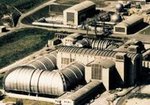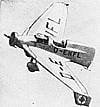Glider
Major
Sorry Lanc but I am going to side with RG on the value of the Marshall Plan. Don't forget that the Americans paid a lot of money so that european companies could build european designs for european airforces. Yes there was an element of not wanting us to fall to the russians, but I have never heard of anyone complaining about it this side of the pond. Americans are not stupid and must have known that they were building business competition for the future as the UK and Germany alone were close to par on research and technical ability.
It would have been cheaper for the USA to churn out more aircraft and give them to our airforces and I doubt that we would have said no.
As for the Wall Street crash, the USA was a massive economy and no doubt made mistakes. However they learnt and dug themselves out of the hole faster than most other nations, including ours.
I am very proud of the UK and what we have achieved with few resources but its churlish and foolish not to recognise what others have achieved or done
It would have been cheaper for the USA to churn out more aircraft and give them to our airforces and I doubt that we would have said no.
As for the Wall Street crash, the USA was a massive economy and no doubt made mistakes. However they learnt and dug themselves out of the hole faster than most other nations, including ours.
I am very proud of the UK and what we have achieved with few resources but its churlish and foolish not to recognise what others have achieved or done




